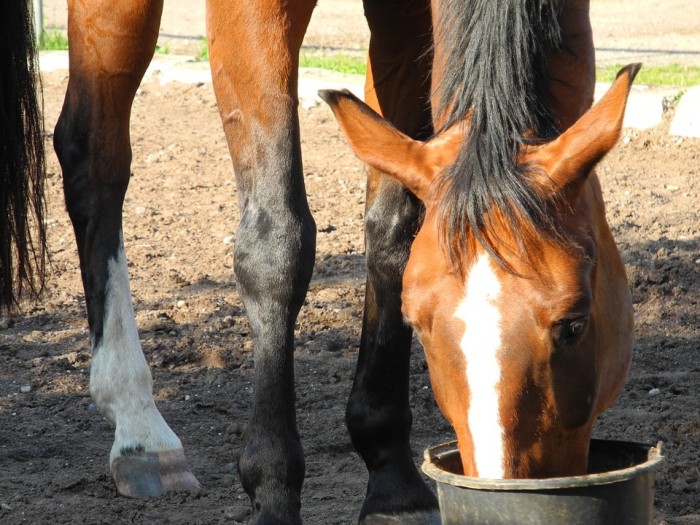
Feeding and microbial disorders in horses
There are a lot of horses with digestive disorders nowadays. It looks like it effects mostly performance horses who are kept in stalls, with limited access to forage and are on a high energy-dense diet. To prevent these problems, the researchers are trying to understand the mechanisms in the body of horses.
Therefor they set up an experiment with 3 ponies. All 3 where on a meadow hay diet - 100% hay. Then, abrubly they changed the diet for two of them to 70% hay and 30% barley. And the other one 50% hay and 50% barley.
The choice for barley was because of the significant amount of starch in it. And because of the quantity of the barley that was giving al of the sudden, they presumed some of the starch would reach the large intestine.
Barley was giving in two equal amounts at 08.00 an 18.00 hours. Cecal and colonic digesta samples were collected 67 hours and 19 hours before feeding barley. And 5 hours and 29 hourse after the diet was changed. All samples where collected in 5 hourse after the morning meal.
Most studies concentrate on the cecum, this one also on the colon which is the main site where digestive problems occur. Some variation was found between colon and cecum samples. But a few results did not differ significantly.
The abrupt change lead to a decrease in the molar proportion. But the microbial varriations after feeding barley where not that great. It is possible that the amount of starch in the large intestine was not that large. However a decrease of
[(acetate+butyrate)/propionate] ratio was registered while lactate concentration increased although pH remained fairly
constant through the changing of diet. The colon appeared to be the main site affected by the abrupt incorporation of starch/barley in the diet.
Expert opinion by Jantine Steehouder
Sadly the experiment was only conducted on three horses and only for the duration of 1 day. The long term effects were not examined. I personally think if the body has to adjust to a large amount of starch on a daily basis, the results would be a lot different for a lot of horses (especially if they consume little energy).
> From: A. de Fombelle et al., JEVS 21 (2001) 439-445. All rights reserved to the Equine Nutrition and Physiology Society. Click here for the online summary.


